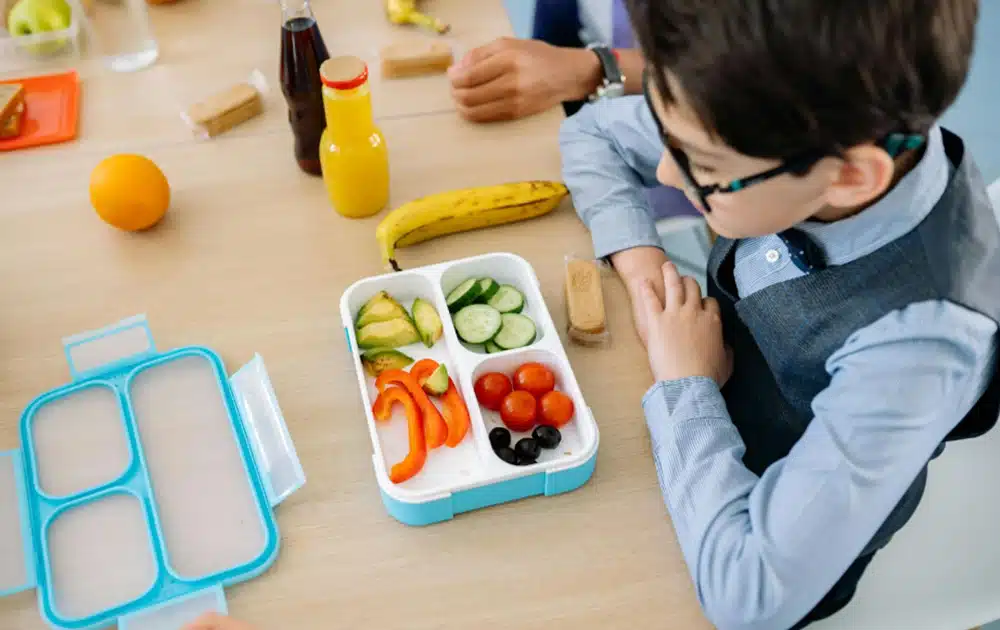Top 6 math games for kids: free, fun activities to try today
Nikki Stevenson
Nikki Stevenson
Up next
A Nutritionists Guide to Realistic Lunchboxes this Back to School
If you've ever heard, “But I’m never going to use math in real life!” from your child, you’re not alone. Luckily, math doesn’t have to be a chore. In fact, with the right math games for kids, it can be as fun as playtime! (Well, mostly.)
Whether you’re a parent, a teacher, or someone who just wants to see the next generation confidently calculating their way through life, incorporating math games into your child’s routine can help.
Benefits of playing math games for kids
Math games offer a range of benefits for young learners. First off, they help improve critical thinking and problem-solving skills. Instead of memorising formulas, kids get to experiment and test out solutions in real time.
Math games also promote collaboration. When played in groups, children learn how to work together to solve problems, enhancing their social skills alongside their mathematical abilities.
They’re also a brilliant way to build a child’s confidence with numbers. The more kids play logic games, the more they see that math isn’t something to fear but a tool they can master.
Finally, for teachers and parents, math games show a child’s understanding of mathematical concepts in a less formal, stress-free environment.

Sign up
Get tailored content based on your week of pregnancy
By signing up, you agree to receiving our Newsletters. Cancel anytime.



Top math games for kids
1. Monopoly
Yes, the classic family board game Monopoly has been helping kids with math for generations. Players practice addition, subtraction, and even percentages when calculating rent or figuring out mortgage values. Monopoly also sneaks in lessons about money management and the concept of risk and reward. It’s a lengthy game, but the educational value and family bonding make it worth the time investment.
2. Prime Climb
Prime Climb is a colourful, strategic game that introduces kids to prime numbers, multiplication, and division. With a simple roll of the dice, children work their way up the number grid with a correct answer, using both their math knowledge and a bit of luck to reach the finish. It’s a fun and accessible way to get kids to practise multiplication tables while playing.
3.Tiny Polka Dot
Tiny Polka Dot is perfect for younger kids just starting their math journey. It’s a set of colourful cards with various games designed for preschool to primary school-aged children. From counting to pattern recognition, this game helps kids grasp number sense in a playful, hands-on way. It’s an excellent tool for teaching early math skills while keeping it fun and light-hearted.

4. Smath
Smath is essentially Scrabble with numbers! Players build equations on a game board using numbered tiles and math operation symbols. The goal is to create math problems that result in the highest score possible. It’s a great way for kids to practice addition, subtraction, multiplication, and division, all while having fun with family or friends.
5. Math Dice
Math Dice is a fast-paced, portable game perfect for quick math practice on the go. Players roll the dice and then use basic operations to combine the numbers to reach a target. It’s simple but encourages critical thinking and quick mental math. This one’s ideal for travel, as it’s small and easy to carry, but it packs a big punch when it comes to building math skills!
6. Speedy Snail
Speedy Snail is an exciting online educational game that sharpens math skills and motor coordination, all while keeping kids entertained (a mean feat). In this fast-paced adventure, players control a speedy snail racing to the finish line. Along the way, they’ll need to pick up boosters like +10, +20, and -5, using quick addition and subtraction to choose the best speed boost.
With engaging gameplay, easy arrow-key controls, and competitive fun, Speedy Snail is perfect for solo play, friendly matchups, or group challenges.

How to choose the right math game
Not all math games are created equal, so how do you pick the right one for your child? Start by considering their age, grade levels, and current math abilities. Younger children might benefit from visual games like Tiny Polka Dot, while older kids can handle more complex games like Prime Climb or Smath.
Think about your child’s interests. If they love board games or card games, opt for something that will engage them. Games like Monopoly include real-world scenarios, which can help make abstract math concepts more relatable.
It’s also a good idea to look for games that grow with your child. Games like Math Dice, which can be played at different levels, can challenge your child without overwhelming them.
Essential tips for parents and teachers
Incorporate games into daily life
Don’t wait for “math time” to roll out these games. Weave them into family game nights, weekend activities, or even as a fun wind-down at the end of the school day.
Play along
Kids are more likely to stay engaged if they see you participating. Plus, playing along gives you a chance to model positive attitudes towards math and learning.
Encourage healthy competition
A little bit of friendly competition can go a long way! Whether it’s seeing who can solve a problem the fastest or who can earn the most points, competition can boost motivation.
Praise progress, not perfection
Focus on the effort your child puts in rather than whether they get the answer right on the first go. This helps build a growth mindset, where mistakes are seen as part of learning.
Mix it up
Variety is key! Rotate through different games to keep things fresh and exciting. It helps prevent boredom and ensures your child gets a well-rounded math experience.
Wrapping it up
Math games are a fantastic way to make learning fun and interactive.
By bringing them into your child’s play routine, you’ll help them develop essential math skills in a way they’ll actually enjoy! (Yes, it’s possible.)
Related Articles
Trending
Nikki Stevenson
Follow +Nikki is a parenting writer and a mom to three wild boys who keep her on her toes (and occasionally make her question her sanity). With over 15 years of experience in the parenting industry, she has more tips and tricks than Mary Poppins on speed dial. When she's not typing away at her keyboard, you can find her sipping on coffee, hiding in the bathroom for five minutes of peace, and dreaming of a world where the kitchen cleans itself.









